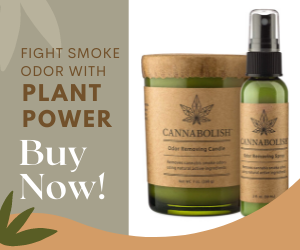Maine’s new recreational marijuana market posted more than $70 million in sales in its first full year, a start that some in the industry thought would be more robust but that they nonetheless characterized as satisfactory.
Growers and retailers are hoping a new year brings more expansion for the industry as stores open in more communities and prices drop, but a number of factors are likely to limit that growth. Those include a federal prohibition on marijuana that limits marijuana businesses’ use of banks and a still small number of communities that allow sales. There are also concerns that some areas of Maine have already become oversaturated with marijuana shops, and there’s no evidence the black market for marijuana has dissipated.
Matt Hawes, co-owner of Brothers Cannabis in Bangor, said Maine’s recreational marijuana market had a “healthy” beginning. The fact that marijuana is now available for all Mainers 21 and older is an accomplishment in itself, he said.
“Any successful operating adult-use regulated program anywhere should be praised, really,” Hawes said. “It’s certainly an advancement in our social civil liberties.”
Hawes opened Brothers Cannabis on Stillwater Avenue with his brother, Greg Hawes, earlier this year. The brothers, who are from the Bangor area, plan to open a second store on Broadway next year.
Statewide sales would be even higher if more communities permitted recreational sales, Hawes said. A small minority of Maine’s nearly 500 municipalities currently allow recreational pot sales, leaving vast segments of the state without a store.
“We have these large geographic regions that are kind of deserts,” Hawes said. “The accessibility in those regions is still pretty low.”
For communities that have not signed off on new stores, there remain fears about the substance as well as who would come in and operate the stores, Hawes said.
He hopes that those communities change their minds in the coming years, especially as members of the recreational industry continue to show they are willing to play by the rules.
“We really are a responsible community of business owners,” said Hawes, who is also a director of the Maine Cannabis Industry Association.
Eben Sumner, legislative chair of the Maine Growers Alliance and CEO of Casco Bay Hemp, a CBD product company in Biddeford, said the recreational marijuana industry is more closely regulated than Maine’s medical cannabis industry. Only the recreational market has a tracking system that the medical marijuana industry has resisted, and there are stricter testing requirements for the recreational industry, Sumner said.

Inside of Brothers Cannabis on Stillwater Avenue in Bangor. Greg and Matt Hawes opened the business in February and are planning to open another store in the new year. Credit: Linda Coan O’Kresik / BDN
Industry insiders, including Hawes, say those policies restrict growth. State officials argue that they are part of the oversight needed to prevent criminal activity and protect consumers.
Despite the regulations, communities that have opted in to recreational sales have seen numerous new businesses, with some fearing over-saturation of the market.
Presque Isle, for example, has seen seven cannabis businesses sprout up since it allowed the sale of recreational marijuana in 2020. That’s around one business for every 1,300 residents.
But having several different businesses provides necessary competition, Hawes said. There will be winners and losers, but the companies that are most responsive to customers will survive.
“In the end, the customer wins,” Hawes said.
Even in areas with local pot shops, black market sales continue to compete with the adult-use market. Early in the program, many were concerned that the black market would continue to flourish as long as prices in recreational stores were higher.
“There’s been so much unregulated access to cannabis for decades that we have to be able to compete with that and create a consumer environment where shopping at a regulated store has a net gain for customers,” Hawes said. “And cost has got to be a part of that.”

One positive point for the industry is a significant drop in prices since the beginning of the program. The average price per gram for recreational cannabis in Maine was $15.11 in December 2020. That has since dropped more than 20 percent to $11.86 last month, according to Office of Marijuana Policy data.
That means the customary eighth of an ounce has dropped in price from around $54 to $42.
Erik Gundersen, director of Maine’s Office of Marijuana Policy, said that members of the new recreational industry had been “innovative and resilient.” He is also encouraged to see consumers increasingly choose the well-regulated and tested adult-use market over the black market.
“That is a positive sign for Maine and for the viability of this new industry,” Gundersen said.
While the standard cannabis plant still makes up a majority of sales, more than 40 percent of sales from January through November this year came from THC-infused products (commonly known as edibles) and cannabis concentrates (popularly known as dabs).
Such infused products seem to have the most growing appeal, Hawes said, with a lot of innovation potential. Hawes was involved in the recent creation of a THC-infused beer produced by Shipyard.
“Mainers seem to be inherently very entrepreneurial, craft-oriented and very good at building niche businesses that represent them as people,” Hawes said. “I think we’ll always have a strong market here.”








Be the first to comment